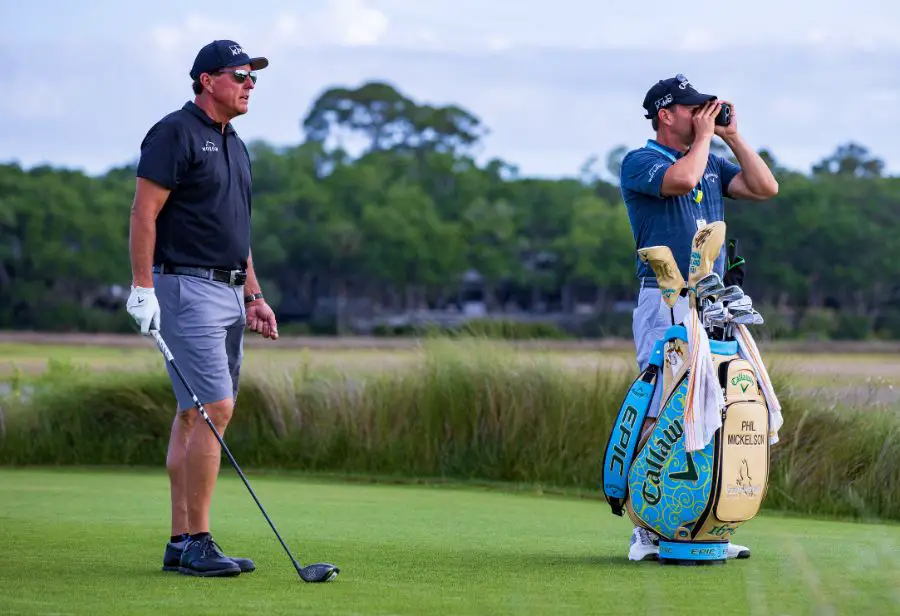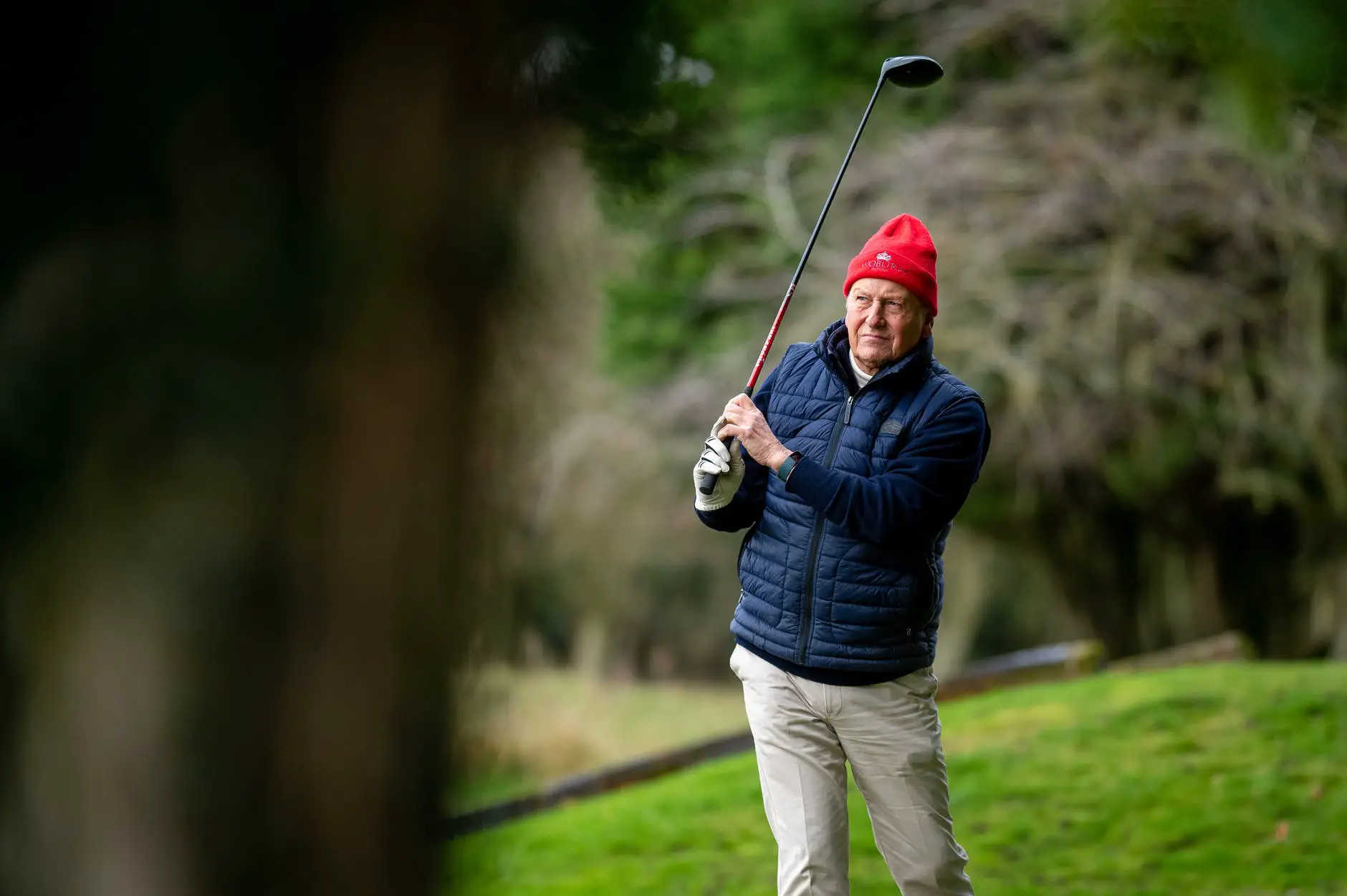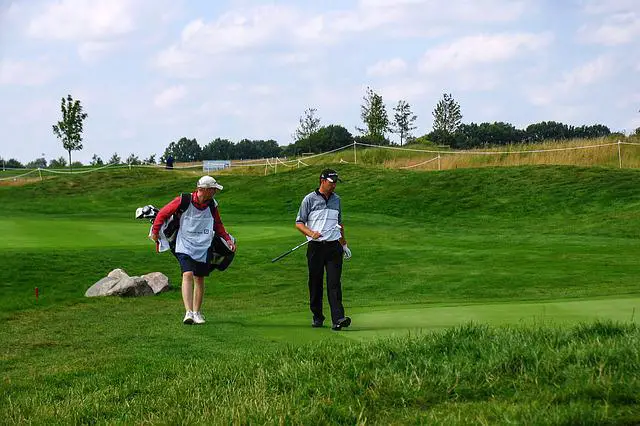Golf is the perfect hobby as it can be played throughout one’s life. This is especially true for professional golfers on tour, but what happens as a professional golfer start to age?
At some point, even the best pro golfers lose the ability to compete at the highest level. Most professional golfers retire when their skills deteriorate or when their physical abilities can no longer keep up with the competition.
The average age for retirement on the PGA tour varies but most players exit the tour in their later 30s and early 40s.
At some point no amount of practice or increased fitness can keep a player’s performance competitive enough to play on tour. Luckily, aging tour players can often move on to the PGA Champions Tour. This tour is exclusive to players who are 50 years or older.
Do Professional Golfers Get Better With Age?
Professional golfers generally do get better with age, but only to a certain point. A professional golfer will reach their peak performance when they maximize their physical ability along with their mental toughness.
This is because golf is a game of both power and strategy. Youth is typically associated with strength while wisdom usually comes with age.
That said, a competitive athlete’s playing career is finite. While golf may not be the most physically demanding sport, it does require strength.
Sportsmen are typically only effective when they are fit and healthy, and by the time middle age arrives, fitness has almost certainly started to deteriorate.
The longer a player can maintain his physical health, the more opportunities they will have to apply their expertise and tactical awareness gained over the course of a long career.

The good news for aging professionals is that golf is unquestionably a sport where experience is a priceless commodity. The wisdom that comes with time spent on the golf course is a significant advantage for the older golfers on tour.
Patience and composure gained over the years is the hallmark of a great golfer. These traits allow aging professionals to compete with their younger counterparts.
How Does Aging Affect the Average Golfer’s Game?
We covered what happens to professional golfers, but what about us average joes? As we grow older, we start to notice that we can’t do as much as we used to.
This unfortunately holds true for the game of golf. Many people may think of golf as a leisurely activity, but it can be demanding both physical and mentally. It’s a sport that requires constant practice and discipline to stay at the top of your game.
The good news is, as we age, we can adjust our golf strategy to keep playing the game we love. In fact, I would say that is what makes this game so beautiful. Mental awareness can offset physical declines.

Whether you’re a seasoned pro or a weekend golfer, getting older will impact your ability to play the game. Aging can adversely impact your ability to score on the golf course, but it doesn’t have to. As one skill fades, another can take its place to compensate in your scoring. Any serious golfer knows that maintaining your skills is a never-ending process. The important thing to remember is to play to your strengths as you age and you’ll be playing the best golf you can.
So, the real question is, what should you expect as you age? Well, there are changes you’ll see on the course, for bad and for good.
- Whether you like it or not, as you age, you are going to lose distance. This is unsurprising. Every decade after reaching the age of 30, it is estimated your 7-iron will lose approximately four yards.
- You’ll hit more fairways. The good news is with this loss in distance, you should be able to gain additional accuracy. There is a direct association between age and tee-to-green accuracy.
- Your abilities develop: approach shots continue to save you more strokes, and your putter begins to win you more matches—that is until you reach the age of 60. People in their 60s and 70s are seeing the steepest declines across the board.
- You’ll play much more frequently-What we can all wish for is more leisure time, especially after the age of 60.
Golfers, on average, improve with age as the become more experienced on the course. However, even the best golfers will eventually start to see their game deteriorate over time. Recreational golfers are likely to continue to develop well into their 50s or older, even if their distance decreases slightly. Those who continue to play as they near retirement age may have fewer real-world obligations and can spend more time on pleasure.
Final Thoughts
Both professional and average golfers must change their game as they age. Even hall of fame golfers need to adjust their approach to stay competitive. What makes golf so great is that as one skill fades, golfers can develop others to compensate.
Like this article? Check out our other blog posts!



1 thought on “At What Age Do Professional Golfers Usually Retire?”
Comments are closed.